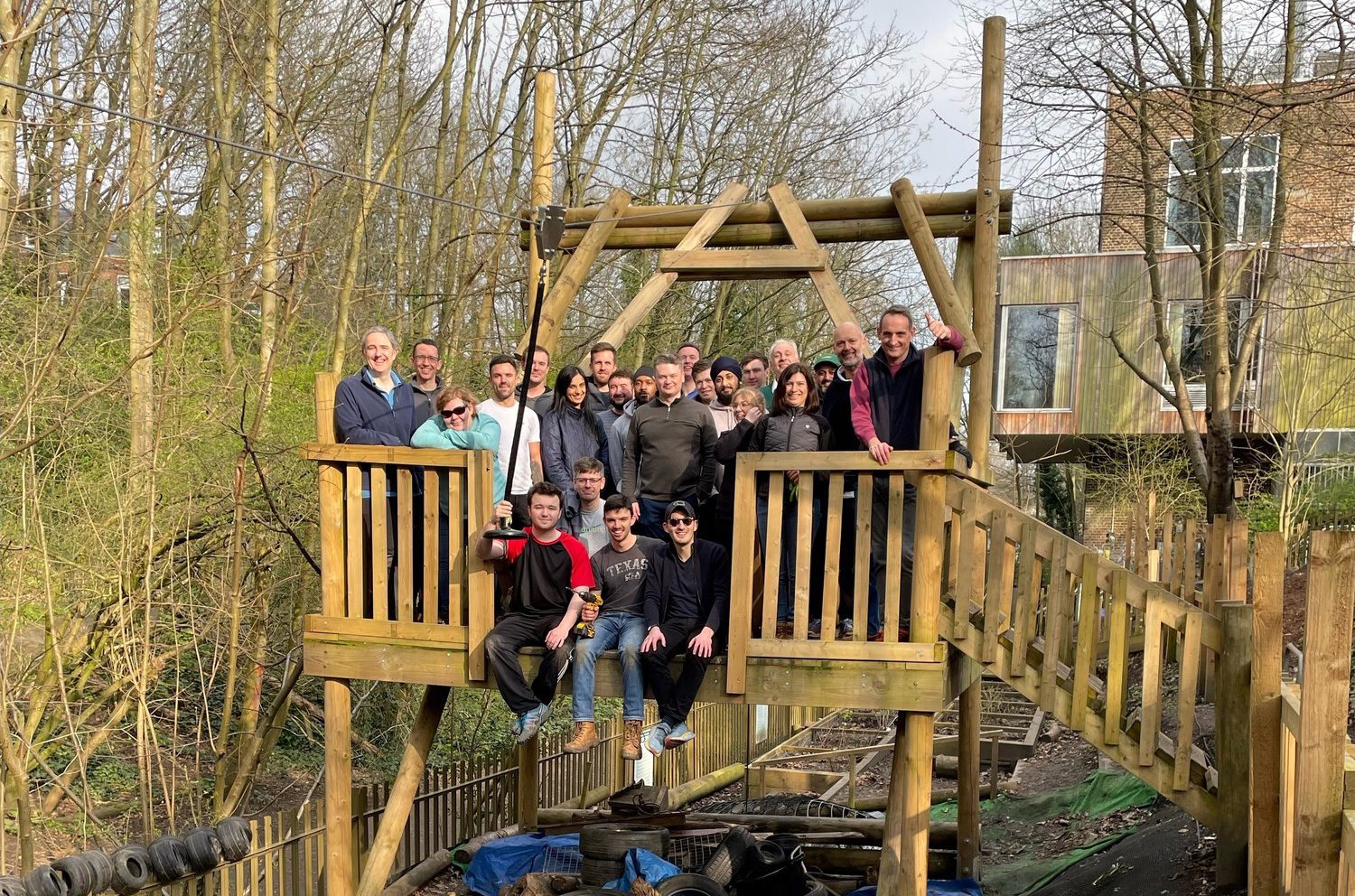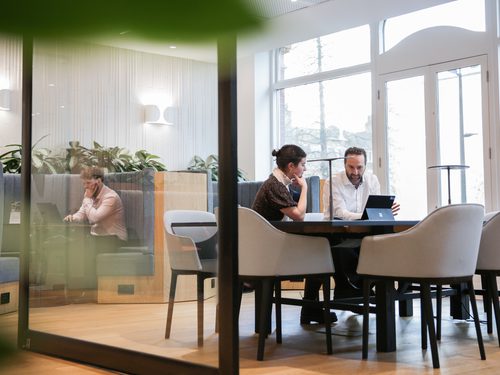

Our business with purpose mission provides a framework for action on the issues that matter.
Discover moreG&T hosts BambooLab Workshop
This summer, G&T was pleased to host the Architectural AssociationŌĆÖs (AA) BambooLab Workshop as part of a week-long education programme in collaboration with the Institut Teknologi Bandung, Indonesia.
The day featured collaborative sessions between students in the UK and Indonesia, combining lectures, live discussions and a symposium. In celebration of BambooLabŌĆÖs return to G&T, we looked back at the programmeŌĆÖs origins, exploring how it has remained a valuable forum for sustainable development and social impact as it has evolved over its ten-year run.
BambooLabŌĆÖs Origins
Our relationship with this initiative began in 2014 when John Naylor launched the AAŌĆÖs original bamboo programme in Haiti, named The Haiti Visiting School. It was created in response to the devastating 2010 earthquake, starting as a two-week initiative which grew into a structured education programme over a number of years, providing tools and training for the local community to help rebuild.
In 2016, the AAŌĆÖs programme was set to build a prototype bamboo house. However, this initiative was impacted by Hurricane Matthew. In response, G&T offered additional support which allowed the programme to be extended to a month, allowing the AA to run additional workshops to retrofit homes. This work equipped local architects and builders with sustainable, disaster-resilient building knowledge.
"Through embedding this capability within the local community, the built environment will become more resilient to future natural disasters, with building materials readily available and sourced from the land. This promotes sustainable construction practices, supported by bambooŌĆÖs extensive availability in the region."John Naylor
G&T has supported the programme from its inception through donations, hosting workshops and inviting John Naylor to run a bamboo construction workshop which G&T employees could take part in. Together, we also launched the ŌĆśG&T Award for DeterminationŌĆÖ in Haiti, recognising students who overcame significant barriers to achieve their qualification.
The initiative has since evolved into AA-ITB BambooLab, connecting AAŌĆÖs Bedford Square headquarters with students and tutors at Institut Teknologi Bandung in Indonesia. The programme continues to this day.
Why bamboo?
Many in the built environment question the suitability of wood and other natural materials in construction. WeŌĆÖve explored this concept in our plant-based and mass timber seriesŌĆÖ. Factors such as fire safety, durability and the challenges of insuring schemes built from wood and other bio-based materials all influence decisions ąĪ╗Ųč╝╩ėŲĄ their use. However, BambooLab seeks to challenge these assumptions and demonstrate the potential of bamboo as a construction material.
At the most recent BambooLab symposium hosted at G&T, John Naylor highlighted that ŌĆ£there are non-technical barriers to the use of bamboo,ŌĆØ often tied to perceptions of it as outdated. In many LMICs, for instance, bamboo is dismissed in favour of ŌĆśmodernŌĆÖ methods such as concrete, steel, and glass. As Colombian designer and architect Sim├│n V├®lez remarked in 2019: ŌĆ£I donŌĆÖt understand why, but there is a big prejudice against those natural materials. Since we (Colombia) are a poor country, they decided we have to show the world that we are a civilised country and that we use concrete. We use brick, we have steel, and we have glass.ŌĆØ
John also observed that European perspectives on bamboo are often shaped by racial biases, noting that modernist ideals historically rejected traditional materials like bamboo in favour of materials which more closely align with Eurocentric visions of progress. BambooLab aims to bridge these cultural divides while promoting the materialŌĆÖs objective advantages in contemporary construction.
One of bambooŌĆÖs core benefits is its strength within durable design. This quality proved vital in Haiti, where its flexibility and resilience supported rebuilding efforts after repeated natural disasters. Unlike concrete, which is strong but brittle if not of good quality - as is mostly the case in Haiti - and prone to collapse, bambooŌĆÖs capacity to bend under stress makes it more resistant to earthquakes, high winds and floods, offering safer alternatives in disaster-prone regions.
ŌĆ£As the Haiti Visiting School evolved into the AA-ITB BambooLab, so too did its mission. This year it's core aim was to develop design awareness around bamboo to encourage greater use of the material within the built environment.ŌĆØJohn Naylor
This would promote resilience, along with sustainability, as bambooŌĆÖs value also extends to sustainable design. It grows rapidly, absorbs carbon dioxide, produces oxygen, and contributes to healthier construction outcomes. When properly treated, bamboo can be more fire-resistant than many types of wood and is widely applicable in beams, flooring, and roofing.
Scepticism, however, persists across the built environment sector, particularly around fire safety and durability. By showcasing bambooŌĆÖs proven performance, BambooLab works to overturn these misconceptions and encourage participants to integrate the material into their own projects.
BambooLab in 2025
John Naylor now co-leads the AA-ITB BambooLab with Institut Teknologi BandungŌĆÖs Andry Widyowijatnoko, hosting the opening day of their latest workshop at G&TŌĆÖs London HQ last month. While the programme has evolved beyond its original form, it remains rooted in promoting architectural practices that uplift communities and work with, rather than against, the environment.
G&T employees joined key parts of the day, including an online lecture on bamboo in the morning and a live session in the afternoon. The symposium examined the challenges of integrating bio-based materials into mainstream education and building regulations. It offered a valuable opportunity to learn and contribute to a growing conversation on sustainable construction.
To find out more ąĪ╗Ųč╝╩ėŲĄ the AA's BambooLab, visit the website -

Our business with purpose mission provides a framework for action on the issues that matter.
Discover more




